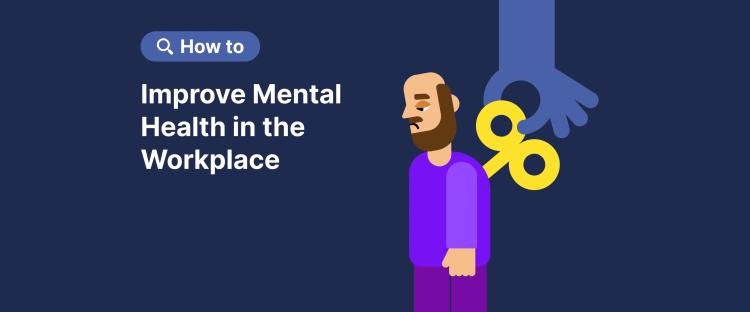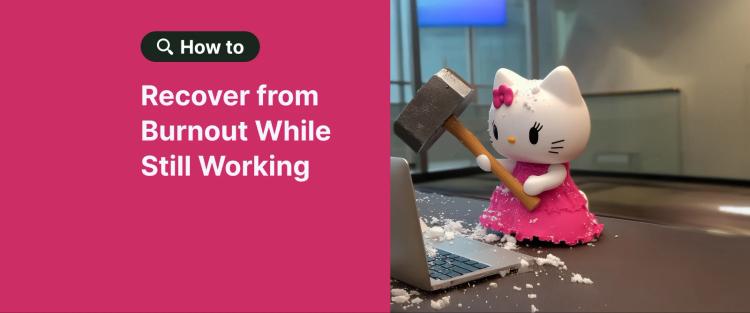Key insights:
Some 60% of workers say they spend their free time recovering from work rather than enjoying it, with 25% feeling guilty for spending time on hobbies.
Feeling bad about work, 65% of workers admit they daydream about quitting their jobs to focus on themselves.
With a lack of free time, 34% say they have given up on self-improvement, while many have stopped exercising (36%), socializing (32%), traveling (27%), and pursuing hobbies (25%).
Worryingly, a quarter of workers (25%) say they no longer feel like they have a personality outside of work.
For many, work no longer ends at five. Constant connectivity and the pressure to always be available leave little room for living.
Hobbies, once something to look forward to once the workday ended, aren't a priority. Painting, running, hiking, and learning have been pushed aside by timely deadlines, after-hours emails, and constant Slack messages.
But this imbalance is costing us more than our free time. It's eroding our well-being and our sense of self.
Headway, a book summary app, surveyed 2,000 working adults on how modern work habits affect life outside of the office. The results? Workers are spending more time in the office — and paying the price for their hard work.
All work, no play: The erosion of work-life balance

For 60% of workers, "free time" isn't really free — it's just an opportunity to recover from the slog of work.
Instead of enjoying the things that make working hard worthwhile, they're too drained to do anything other than decompress. Hobbies take a back seat, social plans get canceled, and rest takes priority.
Hustle, then hibernate: Are hobbies a thing of the past?

For many, work isn't just a means to an end — it is the end. Worryingly, 6% of workers admit they have no hobbies or interests outside of work.
When the workday is over, there are no passions or pursuits to fill their time. It's just an endless cycle of clocking in and clocking out.
But even small, healthy habits — such as a daily walk, reading a book, or cooking a meal — can make a big difference, helping us feel better, think clearly, and inch closer to the personal goals that often get swept aside.
 Even for those with interests outside the office, work still finds a way to get in the way.
Even for those with interests outside the office, work still finds a way to get in the way.
When off the clock, the pressure to be productive lingers, with 25% of workers admitting to feeling guilty for not working.
Why? Because culture has convinced us that leisure is the same as laziness. Yet, a lack of downtime is bound to cause resentment and depression, which is far more damaging to long-term productivity.
Doomscrolling and daydreams: Burnout-induced pastimes

After hours of mental strain, the thought of picking up a book, painting, or going for a walk is just too much. Instead, the overworked employee shuts down their laptop and immediately reaches for their smartphone.
For 47% of workers, doomscrolling has become their number one way to unwind — not because it's fun or fulfilling, but because it's effortless.
 For 43% of workers, doomscrolling isn't just a habit — it's a highlight of the workday. Between tense meetings and stressful deadlines, it's a guaranteed hit of dopamine.
For 43% of workers, doomscrolling isn't just a habit — it's a highlight of the workday. Between tense meetings and stressful deadlines, it's a guaranteed hit of dopamine.
However, when the best part of your day is an endless feed of bad news and ragebait, it's a sure sign that something is off.
It's a tough cycle to break free from, but those hours lost to scrolling are better spent pursuing something meaningful: rediscovering old hobbies, sharpening a skill, or spending time with loved ones.
 For 65% of workers, unemployment is no longer a fear but a fantasy. Between Zoom calls and on the commute, they spend their time daydreaming about quitting their job to focus on themselves. And, for 25%, it isn't an occasional thought but a constant one.
For 65% of workers, unemployment is no longer a fear but a fantasy. Between Zoom calls and on the commute, they spend their time daydreaming about quitting their job to focus on themselves. And, for 25%, it isn't an occasional thought but a constant one.
This desire isn't a sign of laziness. It's a longing for rest, meaning, and a life that isn't dictated by deadlines.
No time to grow: Work-life imbalance effects

Demanding jobs aren't just leaving us overworked but under-lived. Some 36% admit they have quit exercising due to the workday leaving them too drained. Likewise, 27% have shelved travel plans, 25% have abandoned hobbies, and 24% have given up learning new skills. With no energy after work to spare, even basic self-care, such as eating healthy (26%), comes second to the grind.
Yet, if you don't take care of yourself, it's only so long before your mental and physical health suffers — leaving you feeling bad at work and taking a toll on your productivity and performance.
The remedy? Do the opposite — get out, have fun, and enjoy life. Taking time for yourself isn't a luxury; it's the fuel that gets you through the tough days and reminds you why all the effort you're putting in is worth it. For 34% of workers, self-improvement has become a luxury they can't afford — not financially, but energetically. Whether feeling guilty for not being productive at work or just too tired after a long day on the clock, working on ourselves seems just too big a job — so our books go unread, those courses unstarted, and our goals postponed indefinitely.
For 34% of workers, self-improvement has become a luxury they can't afford — not financially, but energetically. Whether feeling guilty for not being productive at work or just too tired after a long day on the clock, working on ourselves seems just too big a job — so our books go unread, those courses unstarted, and our goals postponed indefinitely. Spending too much time in the office, 25% say they no longer feel like they have a personality outside of the office. Consumed by work, their inboxes have become their primary form of socialization, every conversation they have is like a LinkedIn intro, and their job title is their entire identity.
Spending too much time in the office, 25% say they no longer feel like they have a personality outside of the office. Consumed by work, their inboxes have become their primary form of socialization, every conversation they have is like a LinkedIn intro, and their job title is their entire identity.
Work may pay the bills, but it shouldn't cost you your sense of self. When hobbies fizzle out, joy fades, and self-growth stalls, it's a sign that you're working too much and need to remind yourself what you’re working for.
Handing in your resignation or cutting your hours might not be possible, but pursuing hobbies and committing to healthy habits can make the daily grind much more bearable.
Methodology: To create this study, researchers from Headway surveyed 2,000 professionals of all genders, aged 18 and over.
About Headway
With over 50 million users in 170+ countries, the Headway app is the world's most downloaded book summary app. It offers 15-minute audio and text summaries of nonfiction bestsellers, as well as daily microlearning sessions and gamified challenges. The app is designed to help people achieve their self-development goals. Headway received the Editor's Choice award from the US App Store and constantly hits the App Store home screen as App of the Day.






